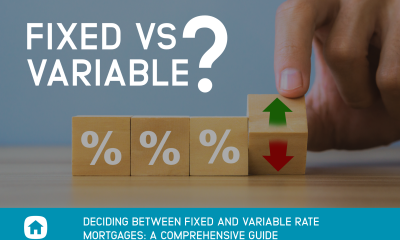TORONTO — For teens finishing off their last years of high school, some financial experts say parents may want to consider an unlikely tool to prepare them for the adult world: a credit card.
Giving teens access to credit, with guidance, may be a way to teach them how to handle it before they leave home for post-secondary schooling, and are bombarded with card offers.
“For some kids, getting a credit card early — and mom and dad will have to be the main signer on that — can help them learn how to use that credit card responsibly,” said Scott Hannah, chief executive of the Credit Counselling Society, based in the Vancouver area.
Students get into trouble with credit cards, and debt, very often, said Michelle Pommells, chief executive officer of Credit Counselling Canada.
It’s important to teach them about how credit scores work, and the implications of not keeping up with bill payments ahead of time, she added.
“A young individual heading off to college or university, they are approached by (financial) services constantly,” Pommells said. “And so, if they haven’t had that kind of training, that conversation prior to entering the academic part of their career, then it can be very challenging… You want to make sure they are fully equipped before they head off.”
Still, credit experts are divided over whether a hands-on lesson with an actual credit card is the best route.
Laurie Campbell, the chief executive of Credit Canada, said unless the young person has a full-time job and the ability to pay off any debt in full, they should not get a credit card.
“There are lots of ways to teach them financial responsibility, without them having a credit card,” she said, suggesting that parents teach teens financial habits using their debit card instead.
Pommells said she would prefer that parents teach their kids to use cash, as opposed to credit, for everyday expenses as well.
“But we also appreciate that young adults will need credit to make it in this changing world,” she said. “And there are a number of ways in which one can do that, and also minimize the risk.”
Risks to guardians who co-sign a credit card with their teen include being on the hook for any outstanding balances. As well, any late payments made by the teen will reported on the adult co-signer’s credit history, the Financial Consumer Agency of Canada says on its website.
Teens can get a credit card on their own at age 18 or 19, depending on what the age of majority is in their province or territory. To get a card before they reach that milestone, they will need an adult to co-sign.
Ultimately, parents and guardians will have to assess whether their teen is ready to handle their own piece of plastic.
Look for evidence that they are already prudent with their expenditures, experts say.
As well, make sure they have a complete understanding of the importance of paying both on time and in full, said Hannah. A part-time job or some income to make payments is also ideal, he added.
If you do co-sign on a credit card with your teen, make sure to set clear boundaries on what purchases are allowed or not, said Pommells.
“Is it for emergencies only? What would be an emergency? … What a parent thinks is an emergency might not be what a teen thinks is an emergency,” she said. “Making sure that you are on the same page with your teen.”
Also, review spending with the teen on a weekly basis, to start, and reduce the frequency to a monthly basis once they demonstrate an ability to stay on top of payments, she said.
If the teen is struggling, Pommells suggests having them submit receipts and have a discussion about what was appropriate an inappropriate spending and the implications.
“Each child will be different, and the cookie cutter approach is not feasible,” she said. “It will depend on the maturity and the capacity of the child.”
Ensure that the credit card is used to purchase things that would have been purchased with cash, Hannah said. For example, purchases online that require a credit card, or for situations, such as travelling, where it is not wise to be carrying a large amount of physical cash, he added.
“It’s for safety and convenience. But it’s never meant to carry a balance… it shouldn’t be used for discretionary spending,” he said.
Armina Ligaya, The Canadian Press

 Buying a Home5 years ago
Buying a Home5 years ago
 Credit6 years ago
Credit6 years ago
 Business4 years ago
Business4 years ago
 5 Mortgage Secrets7 years ago
5 Mortgage Secrets7 years ago
 Buying a Home6 years ago
Buying a Home6 years ago
 5 Mortgage Secrets6 years ago
5 Mortgage Secrets6 years ago
 News12 months ago
News12 months ago
 Business4 years ago
Business4 years ago




